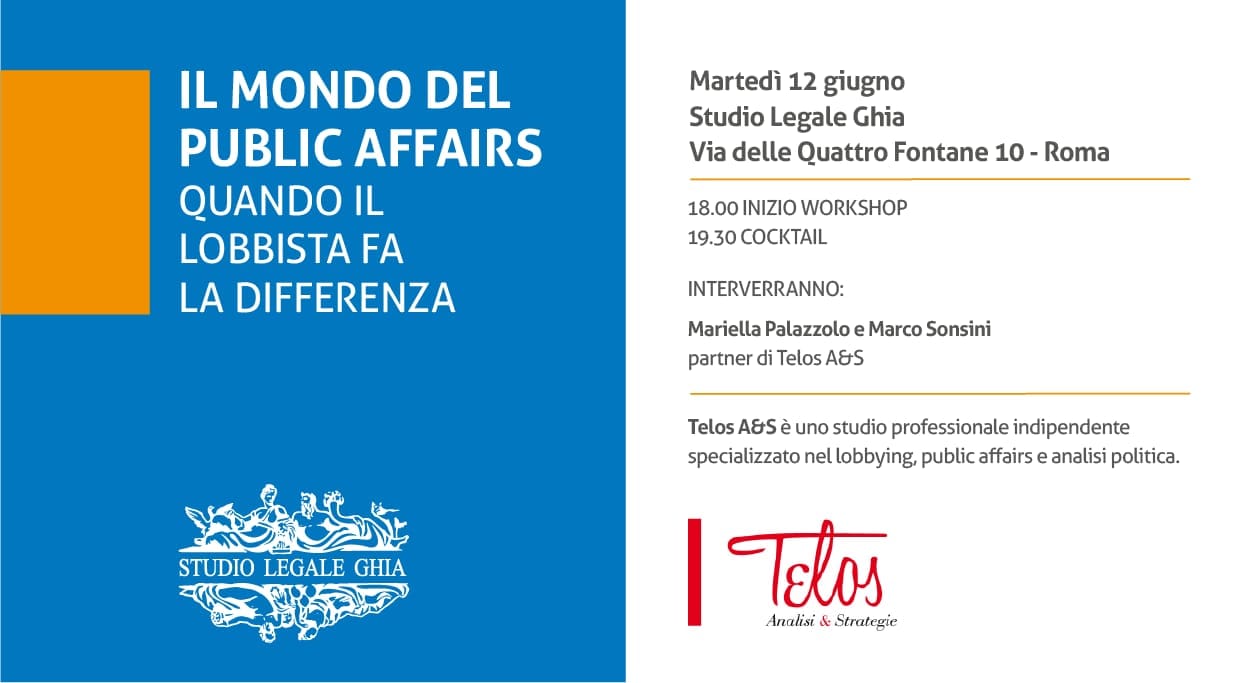When the lobbyist makes a difference. Telos A&S guest of Ghia Law firm
What do lobbyists do in a law firm? They talk about lobbying and tell how the lobbyist can work, and very well, in concert with the lawyer.
This is not the first time that Mariella Palazzolo and Marco Sonsini, from Telos A&S, have enjoyed the hospitality of the Ghia Law Firm. A little more than a year after the Milan event, on 12 June Rome hosted this very special meeting.
Enrica Ghia, the host, here in Rome flanked by her father, Lucio Ghia, founder of the historic Roman firm, recalled that the lobbyist and the lawyer make two different jobs, but they can really make a difference and went on saying that the lawyer’s task is to 'represent a specific interest. While the job of the lobbyist is to understand if that specific interest has aspects and value of general interest and is therefore worth to be brought to the attention of the Institutions’.
Mariella Palazzolo started with a provocation, saying that lawyers are (also) lobbyists and that therefore they are very peculiar competitors of lobbyists. She had already written about this strange activity in the past on Formiche. ‘But actually - Palazzolo continued - we are here today because we know that we can be partners, each in our own field of competence’.
Marco Sonsini has made a roundup of case studies taken from the collaboration of Telos with numerous Italian and international law firms. He then indicated the correct choice of timing among the essential elements for the effectiveness of lobbying, and concluded by saying 'The lobbyist makes a difference because he considers the point of view of the public decision maker. It is fundamental to draw a clear line of distinction between the two areas: it is more appropriate (and wiser) that is the lobbyist to speak with the public decision-maker'.
Mariella Palazzolo then concluded by saying ‘The lobbyist is a professional, NOT an intermediary. The lobbyist is a professional, NOT a fixer. Our job is to help companies, organisations and individuals to represent their interests, their point of view, their proposals, whenever they find critical issues that have causes (and therefore solutions) of a regulatory nature’.
The debate that followed was lively, to say the least, also thanks to the numerous presence of lawyers, tax experts, corporate lobbyists and representatives of the institutions, both politicians and bureaucrats.






SocialTelos